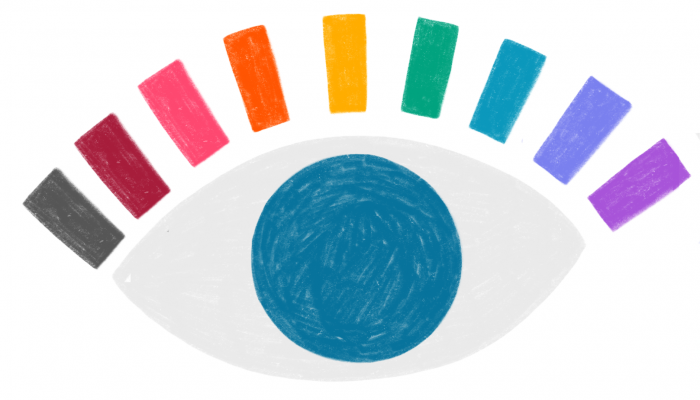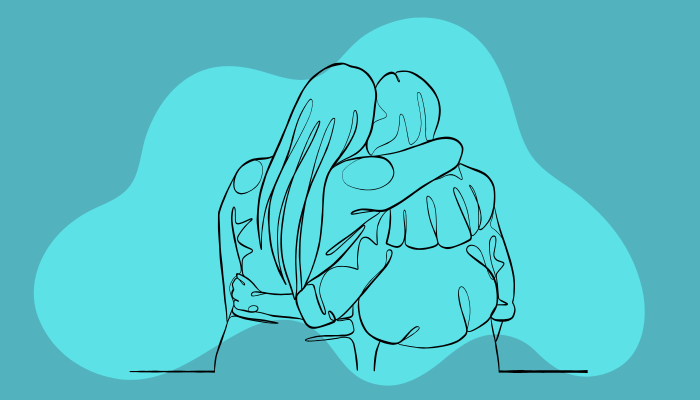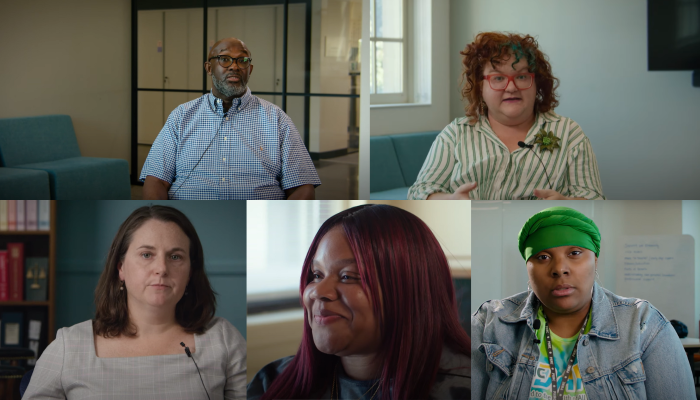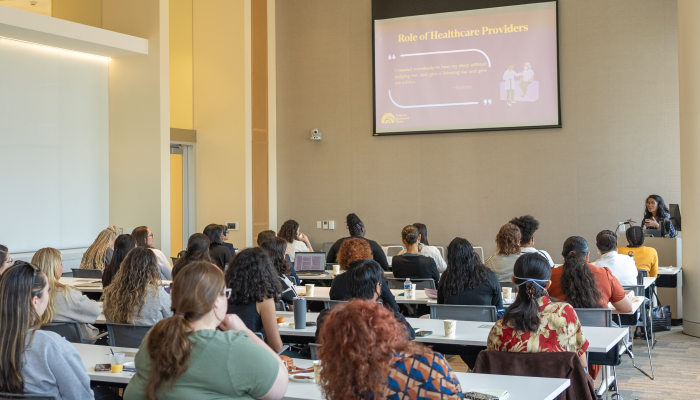by Emily Walter, Office of Domestic Violence Strategies
Domestic Violence Awareness Month (DVAM) is an opportunity to uplift conversations about domestic violence (DV) or intimate partner violence (IPV). Domestic violence is a pattern of behaviors used by one person to maintain power and control over another person in an intimate or family relationship. Often, depictions of DV and IPV show heterosexual couples. This can be lead to harmful assumptions about who can experience intimate partner violence. In reality, IPV can impact any relationship, regardless of gender or sexuality.
National surveys have found that LGBTQ+ individuals experience IPV at equal to or higher rates compared to heterosexual, cisgender relationships. At the same time, LGBTQ+ survivors of IPV often find asking for help difficult, and when they do, find fewer specific resources. But how common is IPV in the LGBTQ+ community? Why is getting help difficult? And what can be done?
What we know about LGBTQ+ IPV experience
Understanding how prevalent IPV in LGBTQ+ communities is challenging because often people feel unsafe reporting this information. Generally, we assume that actual experiences are higher than what is reported. National survey data do indicate that IPV is common in the LGBTQ+ community. These data include:
- 61.1% of bisexual women, 26% of gay men, and 37.3% of bisexual men have reported an experience of rape, physical violence, and/or stalking within an intimate relationship.
- 63% of lesbian women, 76% of bisexual women, 60% of gay men, and 53% of bisexual men have reported experiencing psychological aggression by a partner at some point in their lives.
- Transgender folks also experience some of the highest levels of intimate partner violence with 54% of individuals reporting an instance of IPV. Nearly one-quarter (24%) have experienced “severe physical violence by an intimate partner.”
We know that IPV is a common experience in LGBTQ+ communities. Creating safer spaces for everyone is a process that starts with taking all survivors’ experiences seriously. If someone tries to get help and their experience is minimized or if they are asked to educate a care provider about LGBTQ+ topics while in crisis, that can add to the trauma they have experienced.
Seeking help can be complicated
LGBTQ+ survivors may be afraid to reach out for help for some unique reasons:
- Systematic discrimination: Survivors may fear being denied resources because of their LGBTQ+ identity. They may also fear that the resources will not be inclusive or supportive of their identity.
- Community relations: It is common for LGBTQ+ communities to gather in “safe spaces,” or areas that are supportive of their identities. A survivor could have a higher probability of running into their abuser in these shared spaces.
- Identity abuse: The abuser may weaponize the identity of the survivor and threaten to out the survivor to people in their life. The survivor may be manipulated into thinking that this is “normal” in LGBTQ+ relationships or that they are “not enough” of their identity.
All LGBTQ+ survivors deserve to feel supported and affirmed when experiencing IPV. When reaching out for help can feel scary, responding to survivors with compassion and support is even more important.
What you can do
The LGBTQ+ community faces different risks when experiencing interpersonal violence, fortunately there are some easy actions you can take to support LGBTQ+ survivors:
- Learn about how to create and model healthy relationships in all parts of your life. Don’t assume that someone’s relationship must be healthy or unhealthy because of their gender or sexuality.
- Get familiar with local resources for all survivors of domestic violence. Share the information with your communities!
- Educate yourself on how to support and be an ally to the LGBTQ+ community. If someone tells you they’re experiencing IPV, believe them, and tell them they’re not responsible for the behavior of their partner.
- Also make it clear that people should be accountable for their own behavior. Sexual orientation or gender identity are not excuses for harming a partner.
- Follow LGBTQ+ activists on social media to stay up to date with current issues.
Together, we can build a future that is free from interpersonal violence for all communities and identities.
Get help for yourself or help someone else experiencing domestic violence or sexual assault:
- Call the 24/7 Philadelphia Domestic Violence Hotline: 1-866-723-3014.
- Know your rights: LGBTQ+ people are entitled to services for IPV. Read this fact sheet on LGBTQ+ rights to IPV services.
- Create a safety plan for yourself or someone you know experiencing domestic violence. Use this guide on making a safety plan for transgender and non-binary people.
- Visit local domestic violence and legal aid organizations who could help.
- Visit the Safe in Philly Map for information about where to find local resources for help.




